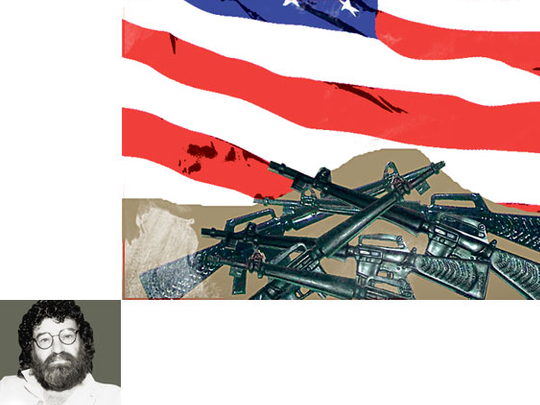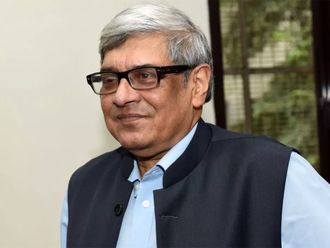
Ernest Hemingway had it right, when it's time to say farewell to arms, you pick up your duffle bags, fold your tents and head home, later to ponder in the cold light of hindsight whether the bloodshed was worth it. And certainly in Iraq the scars of invasion will run deep and long for both invader and invaded.
For weeks now, according to news reports, the main highway leading south to Kuwait has been clogged with American convoys, and the skies over Baghdad have echoed with the roar of aircraft flying troops home. This troop movement is part of an accelerated effort to meet the December 31 withdrawal deadline of all American forces from that ancient land between the Tigris and the Euphrates. And that explains the purpose of US Vice-President Joseph Biden's visit to Baghdad on Tuesday.
December 31, 2011, will represent for Americans the end of a harrowing eight and a half years of war, but for Iraqis it will represent the beginning of a long process of rebuilding their country and healing wounds of sectarian, tribal and ethnic strife.
Whichever way you look at it, the invasion of Iraq, which later morphed into a colonial-style occupation, was not a case of American troops frivolously invading Haiti in 1915 or Granada in 1983. It was without doubt America's worst foreign policy blunder since the Vietnam War, no less so because it was carried on the wings of a contrived casus belli — Saddam Hussain's mythical weapons of mass destruction.
Consider this: Hundreds of thousands of Iraqis have been killed and wounded, along with two million displaced. It's not clear that anyone really knows the exact figures.
Flimsy pretexts
Roughly 4,500 Americans were killed and 30,000 wounded. Those figures, however, we do know. Please take a moment to sit back and imagine how staggering these numbers are. But the costs in treasure are equally staggering. Linda Bilmes, a lecturer in public policy at Harvard University, and Joseph Stiglitz, a Nobel Laureate and professor of economics at Columbia University, have estimated, in their much acclaimed 2008 book, The Three Trillion Dollar War, that the final cost to American tax payers will be approximately $4 (Dh14.7) to $6 trillion, if you add the two trillion dollars already spent to the cost of paying interest on money initially borrowed to pay for the war. Then add the balance to the costs owed to veterans, including the long-term care of amputees and others disabled amongst them who will be dependent for the rest of their lives on the Department of Veterans Affairs for their livelihood and medical needs. All for what?
You can lambast the neo-conservatives and the Republicans, not to mention a clueless US president George W. Bush, who retreated before no mendacity to convince the American people that the impending war was just and necessary, while under the table they pursued an imperialist — yes, at times resurrecting this quaint term is justified — agenda in the region. But I reserve my contempt for the mainstream media, including the New York Times and the Washington Post, which not only failed to dig deep into those flimsy pretexts advanced for the invasion by the likes of Paul Wolfowitz, Dick Cheney and Donald Rumsfeld, but effectively joined the pack in promoting it.
What happened to a press, you ask, whose sacrosanct role in our lives is to be a watchdog over, not a lapdog of, those in government? Search me.
Biden's visit to Baghdad will formalise a new era in Iraqi-American relations: Henceforth, the US and Iraq will speak to each other in the solid language of diplomacy as two sovereign nations, not in the tawdry language of an occupier dictating orders to his lackey.
I wonder, though, as an afterthought, whether among the two million American servicemen and servicewomen who were at one time or another over the last eight and a half years deployed there, there's a budding writer working on his or her "Iraq novel", one as equally poignant and durable as Norman Mailer's The Naked and the Dead (1948), about the trials and agonies of enlisted men in the Philippines Campaign during the Second World War, and Ron Kovic's Born on the Fourth of July (1977), a memoir about the author's experiences in Vietnam that left him permanently paralysed. It is from the core of wounds, after all, that literature is born.
Fawaz Turki is a journalist, lecturer and author based in Washington. He is the author of The Disinherited: Journal of a Palestinian Exile.










